Човек може да си състави доста точна представа за това какво е правил Исус в детството и юношеството си.
Four Soils Parable
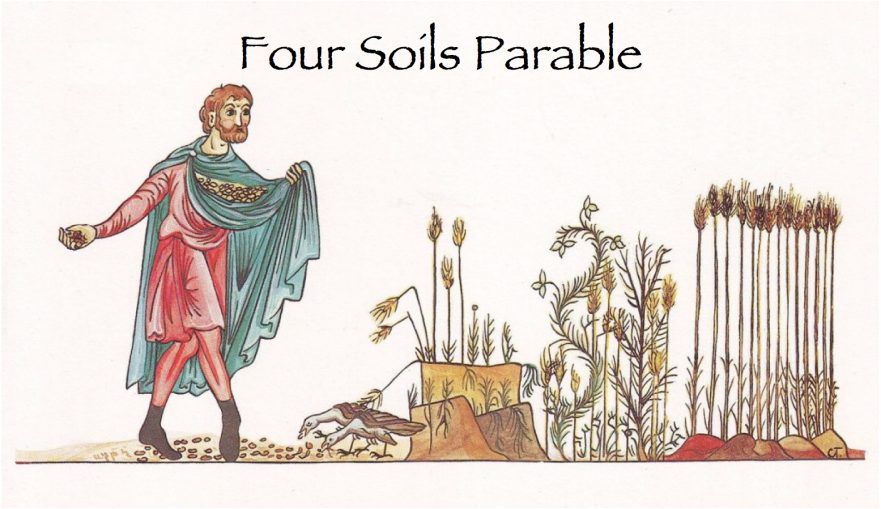
By not revealing what the Four Soils parable was about until its dramatic conclusion Jesus drew in his audience and held their attention, making them the very thing the parable urged them to be: good listeners.
Covered in the Dust of Your Rabbi: An Urban Legend?

Some months ago, pastor-blogger Trevin Wax posted an article called “Urban Legends: The Preacher’s Edition.” There he lists several “urban legends” that he’s heard floating around lately in sermons. Like Internet rumors that people forward on ad infinitum, these preaching illustrations don’t have much grounding in fact.
The Jewish Cultural Nature of Galilee in the First Century

The prevailing opinion among New Testament scholars is that first-century Galilee was culturally and spiritually deprived, and that, therefore, Jesus came from an underdeveloped and backward Jewish region of the land of Israel. Professor Safrai here presents massive evidence against this view.
The Theological Significance of the Parable in Rabbinic Literature and the New Testament
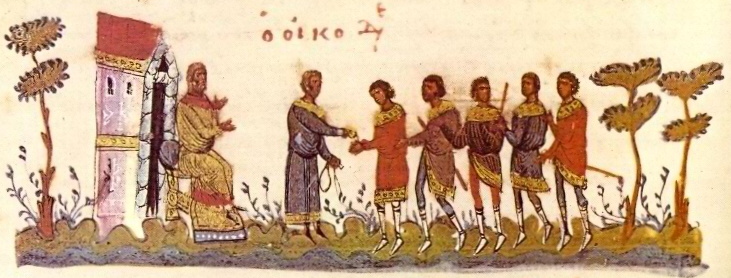
One of the finest articles ever written on rabbinic parables and the parables of Jesus was published in 1972 in the now defunct Christian News from Israel. The article is a classic, but, unfortunately, no longer available. Jerusalem Perspective is pleased to resurrect this milestone article together with the responses of founding Jerusalem School members, the late Robert L. Lindsey and David Flusser.
Over and Under-Familiarity with Matthew 6:11

Hearing something repeatedly can diminish its significance. I suspect that this is particularly true of Scripture. Overfamiliarity with a biblical passage can contribute to its misunderstanding. Sometimes it can reduce a profound saying to nothing more than a cliché.
Were Women Segregated in the Ancient Synagogue?
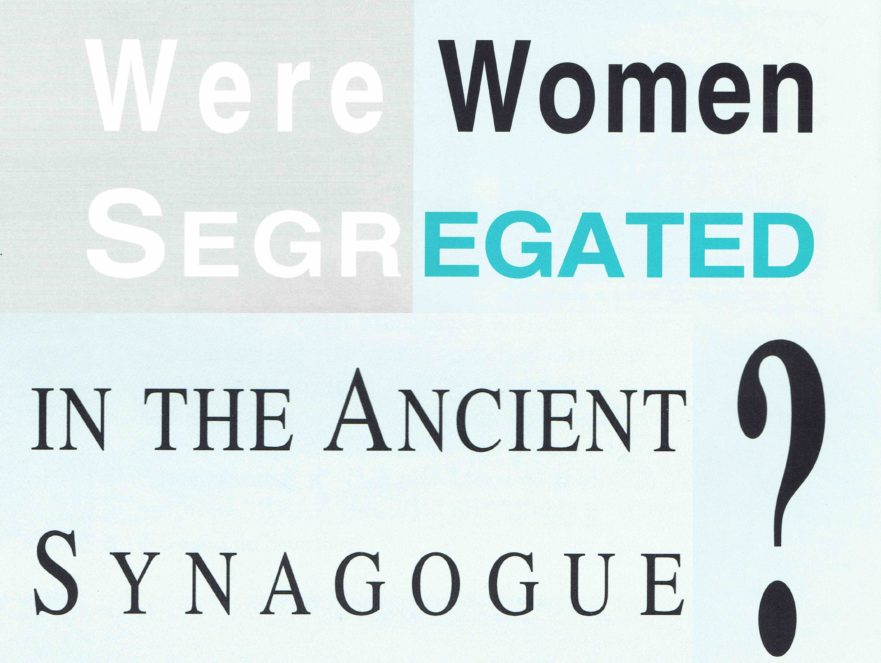
Did women play a passive role in the synagogue congregations of antiquity? Were they separated from male members of the congregation during prayer and study, as is the case today? According to Professor Shmuel Safrai, the answer to both questions is a resounding “No.”
Stewards of God’s Keys

Jesus gave his disciple Peter the “keys of the kingdom of heaven” and promised that whatever Peter “bound” and “loosed” on earth would be “bound” and “loosed” in heaven. What scriptural allusions lurk beneath these expressions and what are their implications? How does the Jewish literary background of Matthew 16:19 help us better appreciate Jesus’ words?
Is the Sage Worth His Salt?

The Gospels record that questions were sometimes put to the sage Jesus of Nazareth in order to “test” him. According to Joseph Frankovic, the questioner’s intent may not always have been hostile.
Shmuel Safrai’s monumental article, “Jesus and the Hasidim”
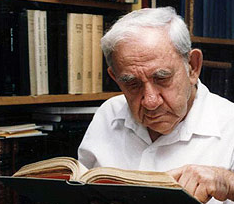
Safrai has produced a detailed description of the Hasidim, and identified from among rabbinic literary works those that originated in Hasidic circles. His research enabled him gradually to sketch a composite portrait of the Hasidim. When he was finished, he discovered that this portrait was very much like the portrait of Jesus in the Gospels.
Jesus and the Hasidim
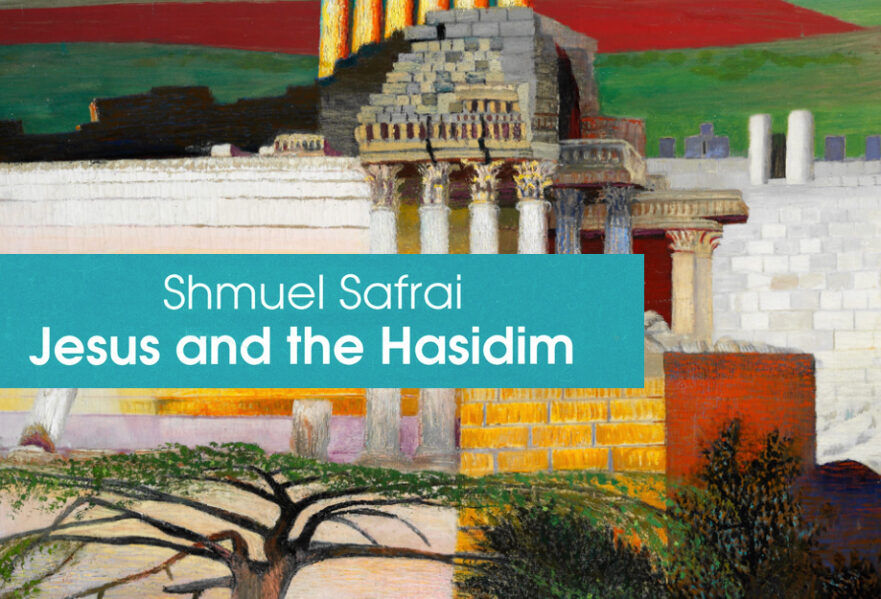
How do we define Jesus within first-century Jewish society? To which of the various Jewish sects does he belong? Was he a Pharisee, an Essene? After years of painstaking research, Shmuel Safrai has identified a new stream within the Judaism of Jesus’ time: the Hasidic movement. This may be a major breakthrough in New Testament studies, as well, because the picture Safrai paints of the Hasidim is amazingly similar to what we know about Jesus. Jesus, who was quite close to the Hasidim and perhaps even involved with some of them, does not reflect Galilean boorishness or ignorance, but rather the dynamism and ongoing creativity of Jewish life in Galilee.
The Sweetness of Learning
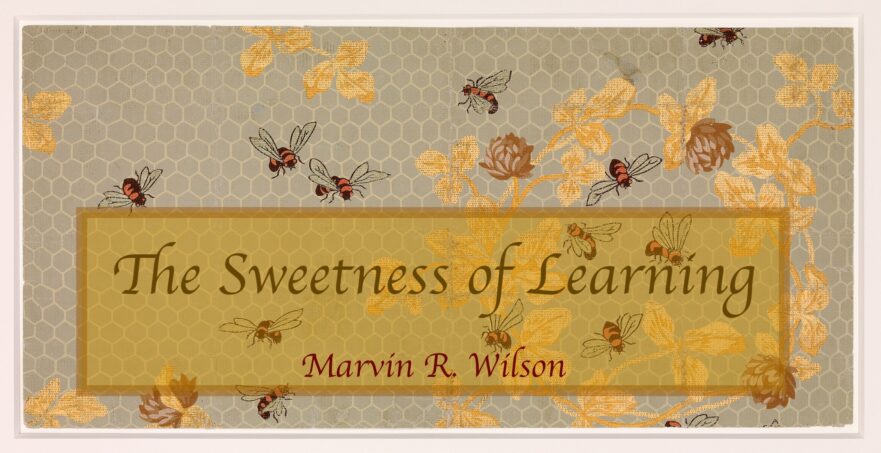
Although the Gospels give little information concerning Jesus’ childhood, we can suppose that in his formative years Jesus received a good Jewish education. Dr. Wilson gives us a glimpse into the Jewish way of training a child.
The Shema in Early Jewish Teaching

“Hear, O Israel: The Lord our God, the Lord is one” (Deut. 6:4), known as the Shema, is a foundational teaching of both Judaism and Jesus.
Master and Disciple

To understand the relationship between a first-century master and his disciples, one must appreciate the central role of Torah in ancient Jewish society.
Jesus’ Education

One can form a reasonably accurate picture of what Jesus was doing in his childhood and adolescence.
At the Feet of a Sage
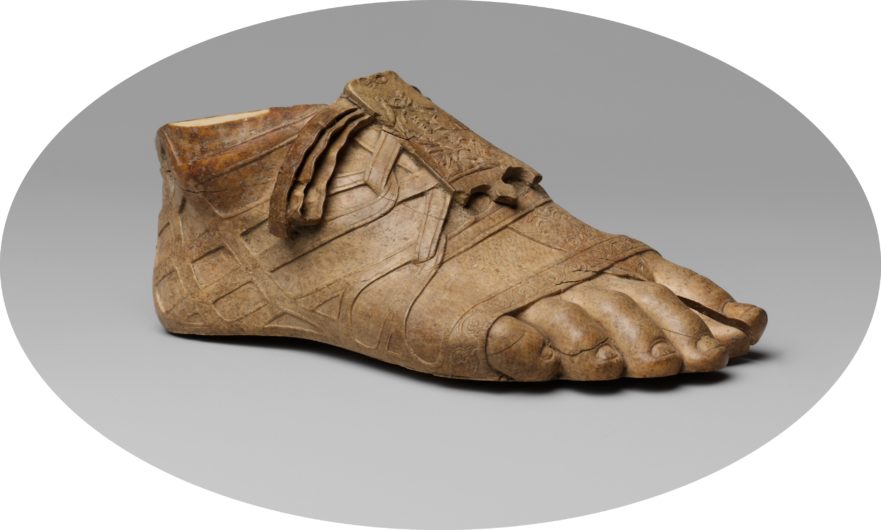
Jewish sages and their disciples were dependent upon the hospitality of the communities they visited.
The Traveling Sage

Jewish teachers of first-century Israel lacked the sophisticated methods of mass communication we have today. Consequently, the sages of Jesus’ day spent much of their time traveling throughout the country, much like the biblical prophets, to communicate their teachings and interpretations of Scripture.
Was Jesus a Confirmed Bachelor?

Jesus still relatively young when he was crucified. His death may have come before he had a chance to marry.

